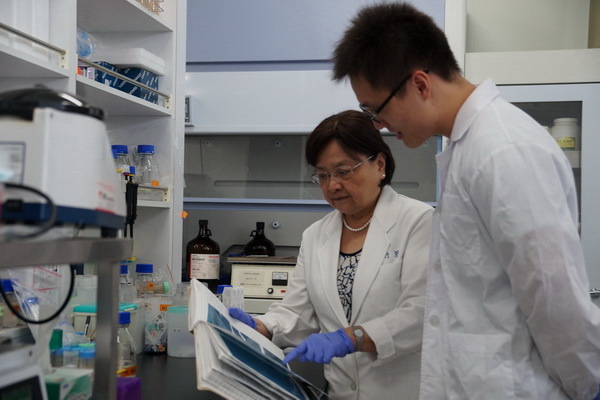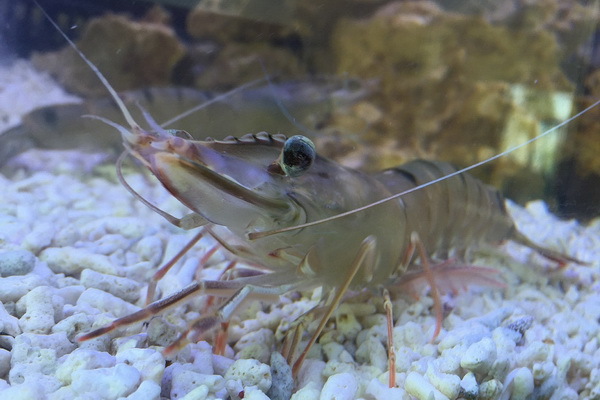First Taiwanese Researcher to Receive OIE Meritorious Award: NCKU Professor Chu-Fang Lo Wins for the Global Shrimp Industry
For decades, NCKU chair professor Dr. Grace Chu-Fang Lo has been studying the white spot syndrome virus (WSSV), which causes an extremely lethal disease in shrimp. In recent years, she has also been researching acute hepatopancreatic necrosis disease (AHPND). She has thus had a profound impact on global research and practices involving shrimp farming. In recognition of her lifetime contributions, the World Organisation for Animal Health (originally the Office International des Epizooties, OIE ) is presenting her with the 2020 Meritorious Award, thereby making Prof. Lo the first researcher in Taiwan to receive this honor.

NCKU Professor Chu-Fang Lo(left) Wins for the Global Shrimp Industry
Established in 1924, the OIE is headquartered in Paris, France. The OIEis responsible for setting standards for global animal health and disease control and collaborates with the Food and Agriculture Organization of the United Nations and the World Health Organization.
An outbreak of the white spot syndrome (WSS) in 1992 caused the output of the global shrimp farming industry to plummet 16% from 721,000 tonnes to 609,000 tonnes. Around the world, there was nothing that could be done. Driven by a strong sense of purpose, Prof. Lo, who originally had no experience in studying crustaceans, resolutely began devoting herself to this unfamiliar field in 1994. In a short couple of months, the research in her laboratory made significant achievements, purifying the WSSV and deriving its DNA.
At first, based on observations using an electron microscope, scientists believed that WSS was caused by a baculovirus. However, based on nucleotide sequences and virus assembly, Prof. Lo realized that it was caused by a new virus. About six years later, after international discussion and agreement, the I nternational Committee on Taxonomy of Viruses officially erected the causative agent of WSS as a new virus. Prof. Lo’s laboratory was also designated as an OIE Reference Laboratory for WSSV. Admirably, she transferred the WSSV diagnostic technologies that she worked so hard to develop to civilian commercial companies under very generous terms.

Several years ago, a new shrimp disease emerged: AHPND. Prof. Lo’s laboratory was again designated as an OIE Reference Laboratory for AHPND, and it is currently the only one in the world. In 2013, Prof. Lo accepted an invitation in Thailand to collaborate on AHPND research. In less than three months, she found an the AHPND-causing Vibrio parahaemolyticus with which harbored a plasmid that expressed the lethal toxin genes and confirmed the pathogenic mechanisms. A testing reagent was further developed to help shrimp farmers determine whether their shrimp fry were healthy.
Prof. Lo transferred from National Taiwan University to NCKU seven years ago. Based on the foundation she laid down in shrimp research, she began research on breeding specific pathogen resistant (SPR) shrimp and specific pathogen free (SPF) shrimp and founded the prospective International Center for the Scientific Development of Shrimp Aquaculture. She built scientifically designed shrimp farms with the goal of promoting global innovations in shrimp farming industry management.
Prof. Lo retired in February, 2020, but her enthusiasm for shrimp research has not diminished. She is currently building the first standardized shrimp farm with smart facilities for aquaculture in Taiwan, where she will continue to contribute dedicate her life’s work in shrimp research to society and improve Taiwan’s shrimp farming industry.
Provider:
NewsCenter
Date:
2020-04-28




